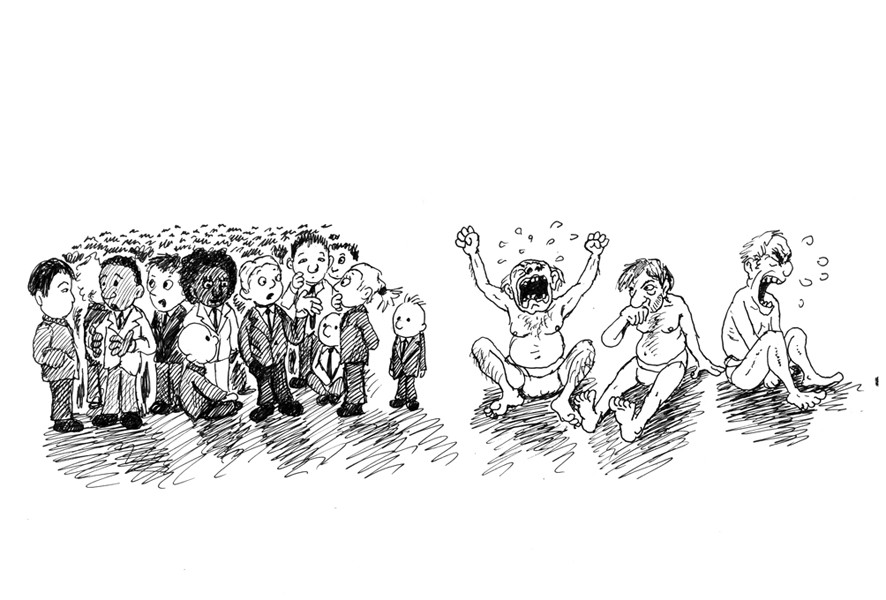Editorial
Time To Change Hands
Recently, there’s been a lot of talk about today’s youth, representation and radical change. The issues boil down to the differences between ‘us’ and ‘them,’ with both parties saying, “Look: you just don’t get it.”
On a hyper-local, federal and international level, you can see it. It’s happening at this university, within our federal government and around the world.
Many on Concordia’s Board of Governors are a decade or more past their set mandates and have been called to resign, yet are still exercising a tight, top-down approach to meetings and dialogue concerning the future of its membership makeup, which inevitably marginalizes students—the most numerous body of this university.
In terms of increasing tuition and the long term vision of this institution, we also have a 78-year-old president contending with a twentysomething president—each with radically different ideas about how the university ought to spend its time, energy and money, as well as how it ought to be funded and who it ought to serve.
On macro level, one could easily apply this thinking to the Canadian political landscape—specifically, to the New Democratic Party’s youthful “orange crush” that swept Quebec in the most recent federal election.
With a third of the official opposition under the age of 30, the NDP’s “brat pack” saw reporters focus on their age instead of their platforms, while the coverage they’ve received has been highly skeptical.
Besides the cutesy contempt for this surge of youth into real representative power, there also seems to be an unfair expectation that these “kids” prove themselves and their credibility.
This is happening all the while plenty of existing MPs, who seem to have no idea what the hell they’ve been doing or talking about for the last decade, continue to tote the party line without any questions asked.
“It’s not a matter of age as much as what kind of job the ministers are doing,” argued 20-year-old NDP MP Lauren Liu in a Postmedia news article this past week. The article was written with a tone of surprise that she seems capable enough to handle her new responsibilities.
As it turns out, the “kids” are the ones who are reminding us that the incumbent ministers aren’t doing a good job.
Liu recently took her opposition, 68-year-old Environment Minister Peter Kent, to task when he told the House the Conservative government was “already on top of the [greenhouse gas] situation.”
Demanding immediate action, Liu came right back, calling the government “out-of-touch,” and arguing they have produced no concrete plan to deal with the impacts of climate change.
And she’s right. The government has had five different ministers in the past five years on their pathetic environment portfolio, and Harper’s Conservatives aren’t exactly known to root for the green cause.
Finally, and perhaps most fittingly, this ‘us’ versus ‘them’ model speaks to the breakaway demonstration Occupy Wall Street—a movement that has unexpectedly launched an international dialogue with over 900 demonstrations worldwide this past weekend.
Granted, the crowd is as diverse as the causes that fly under its banner, but the occupiers are overwhelmingly twenty- and thirty-somethings who understand that the status quo of class warfare being waged by those in power, coupled with a corporatized chokehold on future opportunity is very, very real.
The 99 per cent versus one per cent narrative has permeated the politics and talking points of this event, and the reaction from the one per cent has been, for the most part, unsurprising—they don’t want to give up their power.
“We have to be careful not to allow this to get any legitimacy,” stressed U.S. Congressman Peter King, who was quoted in the Huffington Post Canada.
“I’m old enough to remember what happened in the 1960s when the left-wing took to the streets and the media glorified them, and it ended up shaping policy. We can’t allow that to happen.”
Yet, in all cases, the changes the students, young politicians and occupiers envision are not so radical as the ruling minority would have you believe.
In fact, the demands are pretty damn basic and pretty damn fair. So what’s with the knee-jerk reaction against youth engagement—full of optimism, vim and vigor against all odds, cynicism, contempt and institutional oppression?
The voices of youth are shaking up the boardroom, Parliament and the whole world order, offering another, necessary perspective from a generation who has a different vision for the unsustainable “business as usual” world that is on a dangerous trajectory.
It’s time that ‘they’ start listening.
Those who invest in serving real democracy don’t have to be lawyers, financiers or CEOs, it’s not something only ‘certain’ people can do. Young people are, indeed, leaders.
And our very future depends on acknowledging it.
—Laura Beeston
Editor-in-Chief



